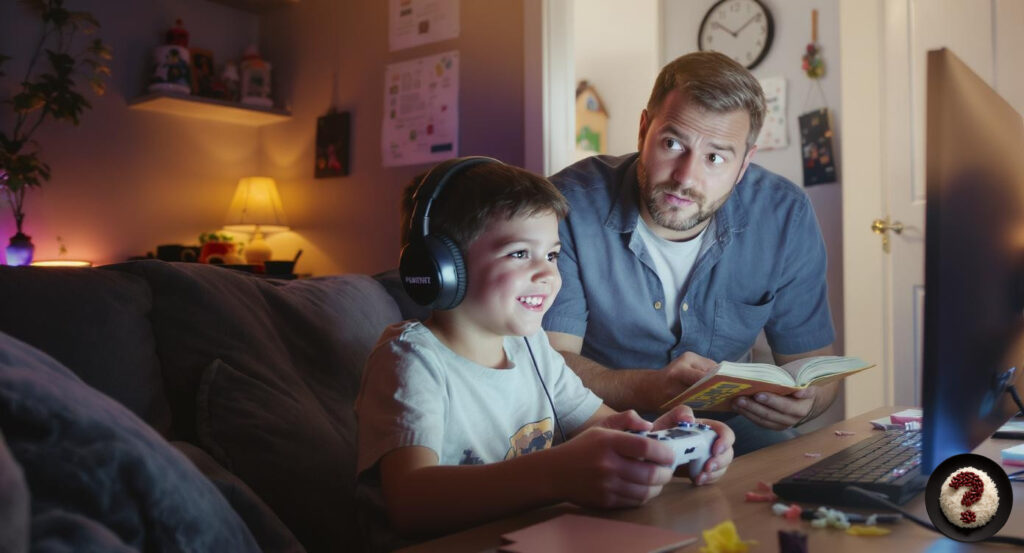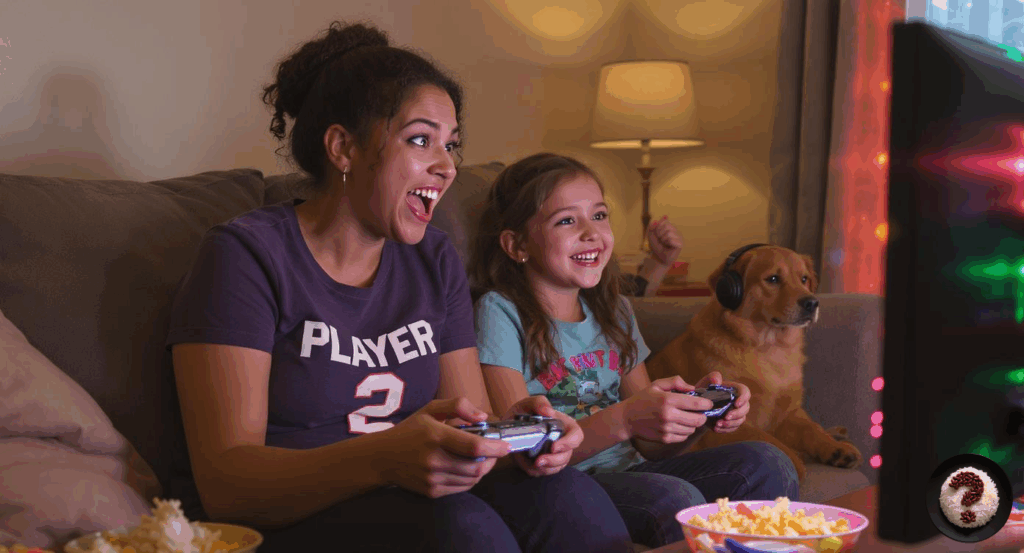
“Should I Let My Child Play Video Games?” – Ready for a Joystick Chat? 🎮
If a child’s room is silent, there are two possibilities: Either they are asleep, or they have switched to “I’m leveling up, Mom, be quiet!” mode in front of a screen. And that’s exactly when you are left with this question: “Should I let my child play video games, or should I pack up the tablet and hide it in a secret drawer?” You are right; this is one of the biggest dilemmas of modern parenthood!
Don’t worry, there isn’t a single answer to this question. But the good news is that not every game is bad, and not every joystick is evil. In fact, some games are surprisingly educational, developmental, and even encourage “in-house competition.” So, yes, if you sit down and play Mario with your child, you can hit two levels with one stone.
Video games can develop children’s skills, especially attention, hand-eye coordination, and problem-solving abilities. For example, children playing Minecraft are not just placing blocks; they are building logic, managing resources, and planning cities. This means a bit of an “engineer’s spirit” might be growing inside them. Of course, if they play for 12 hours straight, the situation might move from plumbing to a sewage crisis; watch out for that.
The phrase “They learn English while playing games” has also become a classic, hasn’t it? But this cliché is based on reality. Since the language of games is usually English, children quickly pick up words like “exit, continue, save game.” We proudly watch them say, “Headshot achieved,” even if they don’t read Shakespeare. That’s a language skill, after all.
Of course, to keep it harmless, balance is crucial, as it is in everything. If your child has been in front of the screen for 5 hours and has forgotten how to speak to you, the sentence coming from inside, “Moooom, my character’s health is low, is there any water?” means the boundary has been crossed. Setting clear rules about how long they can play is actually the key to controlling the child’s relationship with the game.
Another suggestion: Know which game your child is playing. The note that “not every game is educational” exists for a reason. An adventure that starts with a car race can turn into games where zombies climb walls. Games that are inappropriate for their age can leave feelings in the individual’s psychology that are a mix of a cartoon and Picasso.
And yes, children socialize with their friends in games. There are no “skipping stones” contests in the streets anymore. Now, there are groups “building villages in Minecraft” and children doing teamwork in Fortnite. Only the method of social connection has changed; the desire is the same: to share, have fun together, and win an age!

In Conclusion:
Allowing your child to play video games under control is not bad. In fact, it can even be quite beneficial. The key lies in properly managing the duration, genre, and environment. By joining their world, you can both observe what they are playing and organize a small in-house gaming tournament. Who knows, maybe an “Mom vs. Child FIFA final” could start a tradition!
Remember: In a child’s world, a game is not just entertainment; it is also curiosity, discovery, and creativity. Just as marbles and hide-and-seek were in our time, consoles are the polished version of that now. Just be careful: let the joystick remain in the child’s hand, but the remote control should still be yours!
Information Sources:
- Turkish Psychological Counseling and Guidance Association (2024) – “Screen Time and Child Development” Report
- UNESCO Gaming in Education Guide
- International Children and Media Association – 2023 Digital Game Usage Research
~ Thank you for reading the article! You will now better understand why your child is trying to save the character that had a pot dropped on their head on the tablet. 🎮✨
